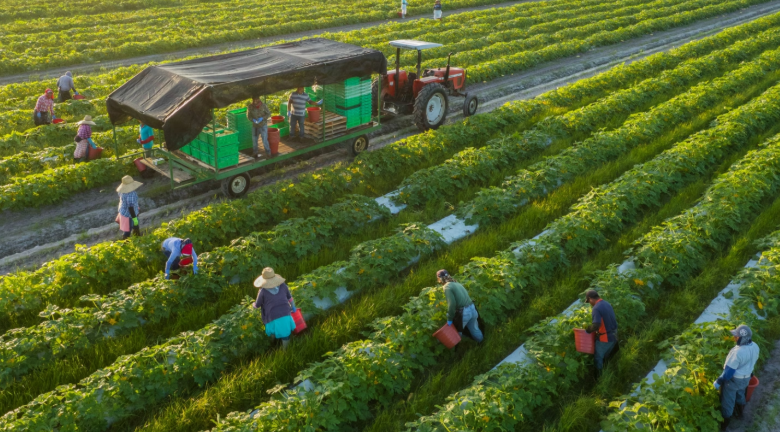Farm Near Me Guide: Finding Local Agriculture and Fresh Produce

Finding a farm near me is easier than many realize, thanks to growing networks and directories that connect consumers directly with local producers. Local farms often provide fresh, seasonal produce, meat, and specialty products that can be purchased directly or through convenient pick-up points. This direct relationship supports sustainable agriculture and ensures better quality food.
Many farms offer unique experiences like pick-your-own fruits and vegetables or farm stands with a variety of fresh goods. Knowing where to find these farms can help people enjoy fresher food while supporting farmers who work tirelessly throughout the year. Access to these farms is improving with online tools that show nearby options clearly.
By exploring local farms, individuals can learn more about food origins and make choices aligned with healthy eating and environmental sustainability. Diverse farm offerings, from organic meat to freshly gathered produce, provide a real alternative to typical grocery shopping.
Finding the Best Farm Near Me
Finding a local farm near me involves understanding the types available, what suits personal needs, and the farm’s offerings throughout the year. The right choice depends on farm activities, product variety, and available seasonal events, which make visits more engaging.
Types of Farms Available Locally
Local farms vary widely depending on location and focus. Some specialize in livestock like cows, sheep, goats, or poultry, offering fresh dairy, meat, or eggs. Others focus on crops like vegetables, fruits, or organic produce.
There are also specialty farms, such as those offering herbs, flowers, or niche products like honey or maple syrup. Community-supported agriculture (CSA) farms provide subscription boxes directly to consumers.
Visitors might find family-run farms emphasizing education and interaction with animals. Farms can be conventional, organic, or sustainable depending on their practices.
See also: Best Chair Yoga for Weight Loss Effective Poses and Tips to Get Started
How to Choose the Right Farm
Choosing the right farm depends on what the visitor values most: product quality, farm experience, or ethical practices. Checking if the farm sells directly to consumers or offers online ordering is important for convenience.
Visitors should verify certifications like organic or animal welfare standards when relevant. Location matters for ease of access and also whether the farm supports local ecosystems or sustainable farming.
Reading reviews and exploring farm websites or local directories helps assess offerings and customer service. It’s useful to inquire about farm tours, workshops, or pick-your-own produce options.
Seasonal Offerings and Events
Seasonality significantly affects farm visits. Many farms offer specific fruits and vegetables only in certain months, such as pumpkins in fall or strawberries in summer. Knowledge of the farm’s harvest calendar helps in planning visits.
Events like milking demonstrations, animal feeding sessions, or harvest festivals add value, especially for families or educational groups. Some farms run holiday markets or farm-to-table dinners.
Checking the farm’s calendar online or contacting them directly can reveal special events and unique seasonal products available, ensuring the visit matches expectations.
Benefits of Visiting a Local Farm
Visiting a local farm offers practical advantages such as supporting sustainable agriculture, accessing fresh produce, and engaging in activities suitable for families. These experiences create opportunities for learning, shopping, and quality time outside urban environments.
Supporting Local Agriculture
Local farms often use sustainable practices like crop rotation, organic methods, and integrated pest management. Visitors can observe these methods firsthand, gaining insight into how farmers balance productivity with environmental care.
By choosing to visit and buy from local farms, individuals help maintain these agricultural practices. This support helps preserve farmland, reduces reliance on large-scale industrial farming, and strengthens the local economy.
Farm visits also cultivate respect for the effort involved in food production. Understanding these challenges encourages more responsible consumption and appreciation for local farmers’ work.
Farm-Fresh Products
Local farms provide access to produce that is harvested at peak ripeness, ensuring better taste and higher nutritional value. Unlike supermarket goods, farm-fresh items have minimal transport time, reducing spoilage and the need for preservatives.
Visitors often find a variety of seasonal fruits, vegetables, dairy, and sometimes meat directly available. Purchasing on-site supports small-scale producers and promotes transparency in food sourcing.
The freshness and quality available at farms can improve dietary habits. It also introduces consumers to varieties not commonly found in larger retailers.
Family-Friendly Activities
Local farms offer educational and recreational activities that engage all ages. Children and adults can learn about planting, animal care, and ecosystems, making the experience both informative and enjoyable.
Activities may include guided tours, pick-your-own produce, petting farms, and workshops on sustainable farming. These provide hands-on exposure to agriculture, fostering connection to nature.
Such experiences offer a break from digital routines and urban settings. They encourage outdoor time, teaching values of patience, responsibility, and food origins in a practical context.





